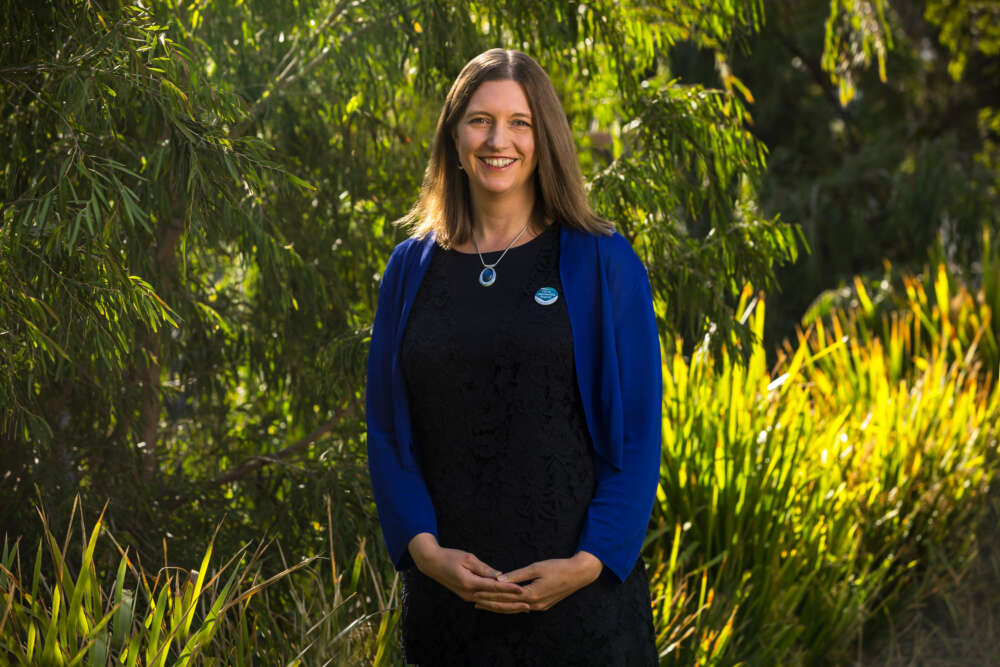It’s a common misconception that people with dementia cannot make or be included in end of life decision making. But this is one of the myths of dementia and end-of-life planning.
There are more than 400,000 people currently living in Australia with dementia. This week is Dementia Action Week (September 18-24) and Dementia Australia’s Kaele Stokes is encouraging everyone to take action by having important discussions around dementia and end-of-life planning as soon as possible.
Busting the myths of dementia
Ms Stokes is the Executive Director of Services, Advocacy and Research at Dementia Australia and has been working at the forefront of busting down the myths and misunderstandings about dementia.
According to Ms Stokes, the first misunderstanding is that dementia often isn’t thought of as the terminal condition it is.
“It is the second leading cause of death of all Australians and is the leading cause of death of women,” she says.

Secondly, she says many people think there is no point in having a conversation or considering the impact of decision making around end-of-life planning for somebody with a cognitive impairment.
“There is a misunderstanding by many people, including health care professionals, that once there is a diagnosis of dementia in place that decision making abilities and capacity is not there and that’s just not the case.”
While dementia does involve a progressive decline, it doesn’t mean that capacity to make decisions disappears straight away. So it’s vital to have conversations around end-of-life and what someone might expect or want as part of their end-of-life planning, early on.
“For somebody with a cognitive impairment, particularly at the earlier stages when they are still able to have involvement in planning and they’re able to make decisions, it’s important to have those conversations with family, supporters and carers at that point in time: when people are able to participate and have some autonomy in decision making,” Ms Stokes says.
“It’s particularly important for someone with a cognitive impairment to be thinking about and talking about their end-of-life wishes at that point because that’s when they’re still able to fully contribute to decision making,” she says.
Late diagnosis and ‘prescribed disengagement’
Often the diagnosis of impairment comes quite late for a number of reasons. For example, people may feel uncomfortable about bringing the subject up or they may have put some symptoms down to other factors such as stress or depression. Unfortunately, that results in late diagnosis. By the time people get to their GPs they are often coming in at a later stage and they’ve already effectively been living with dementia in the community, without any support or formal diagnosis. So by the time they do get a diagnosis their cognitive impairment trajectory has progressed.
Apart from the barrier of a delay in diagnosis, Ms Stokes says the stigma and fear that comes with a diagnosis is also a barrier to starting the challenging conversation around end-of-life planning.
“There’s a sense of nihilism or futility. One of our advocates described it as ‘prescribed disengagement’.
“The winding things down, the extracting of yourself from your day-to-day life. It’s all about ceasing and getting ready to die without any proactive conversations around what that looks like,” she says.
This approach ignores the fact that people can live well with dementia for many years and they can remain relatively independent at home with minimal support. Thanks to people like Ms Stokes, people with dementia can access services and support to help them remain independent and have a sense of autonomy. And they can absolutely be involved in decision making for end-of-life planning.
If you’d like to read up on Advance Care Directives and how to action one, check out our recent article here. And you can also visit Dementia Australia and look at their many help sheets.
The Cognitive Decline Partnership Centre is also full of terrific resources.
If this story has prompted any questions or concerns please call the National Dementia Helpline on 1800 100 500 (24 hours, 7 days a week) or visit dementia.org.au.
